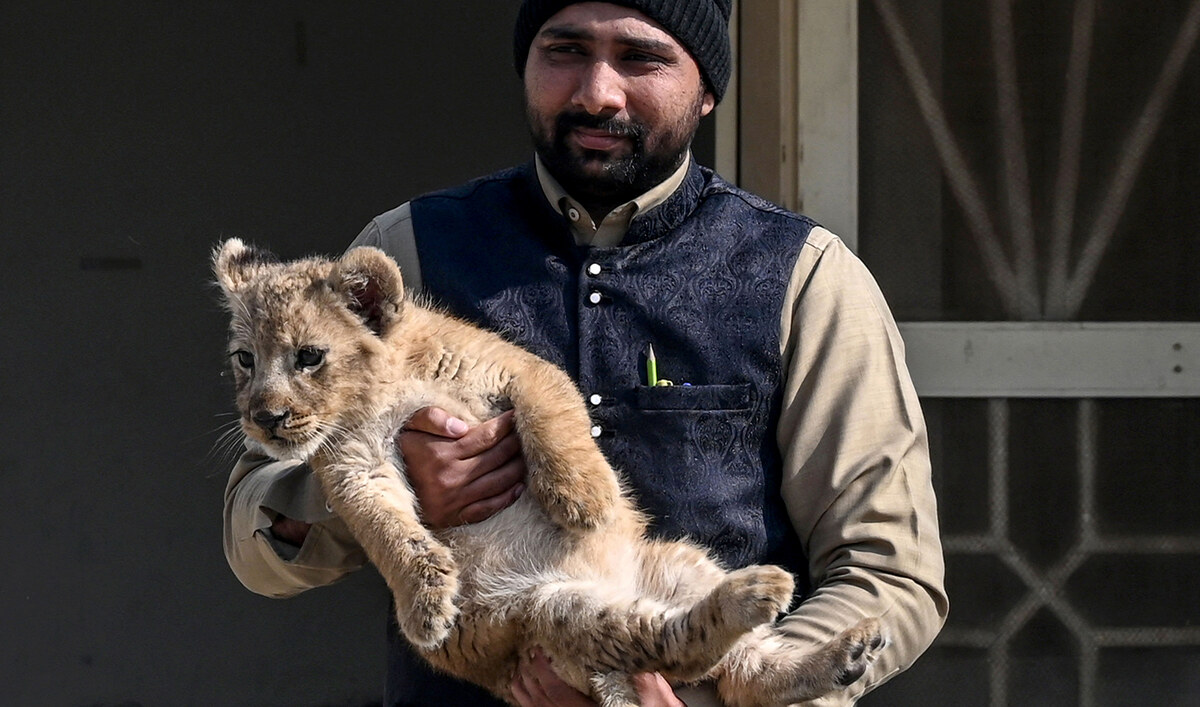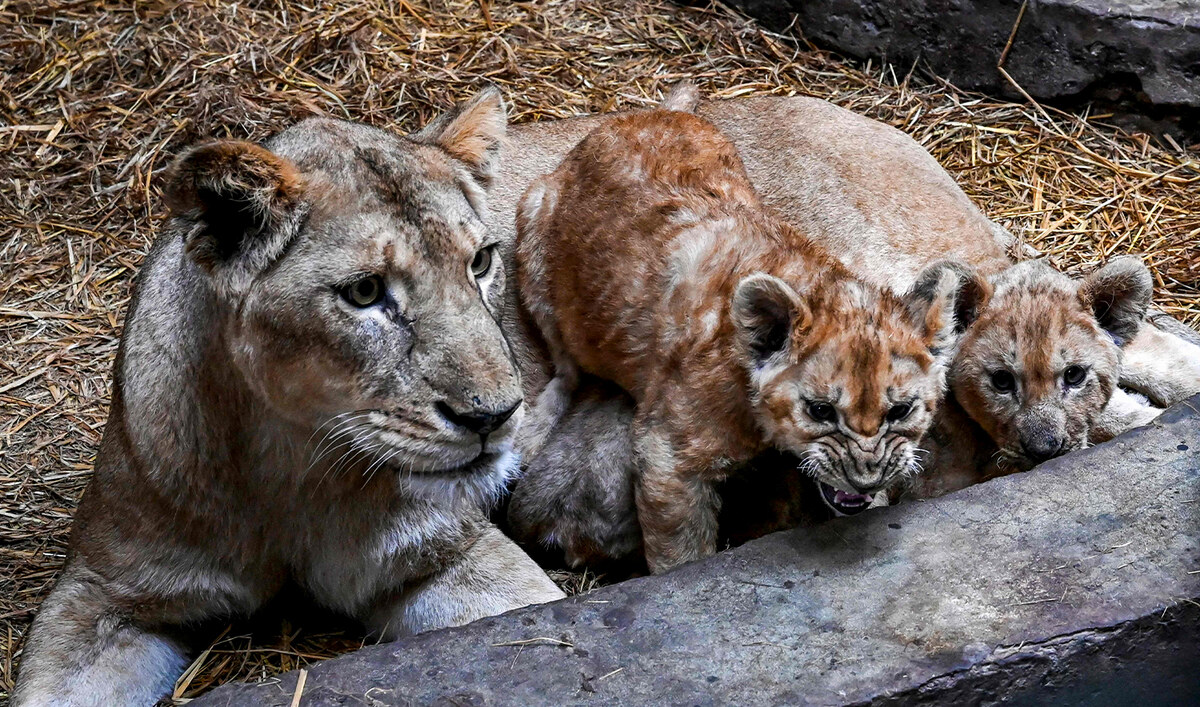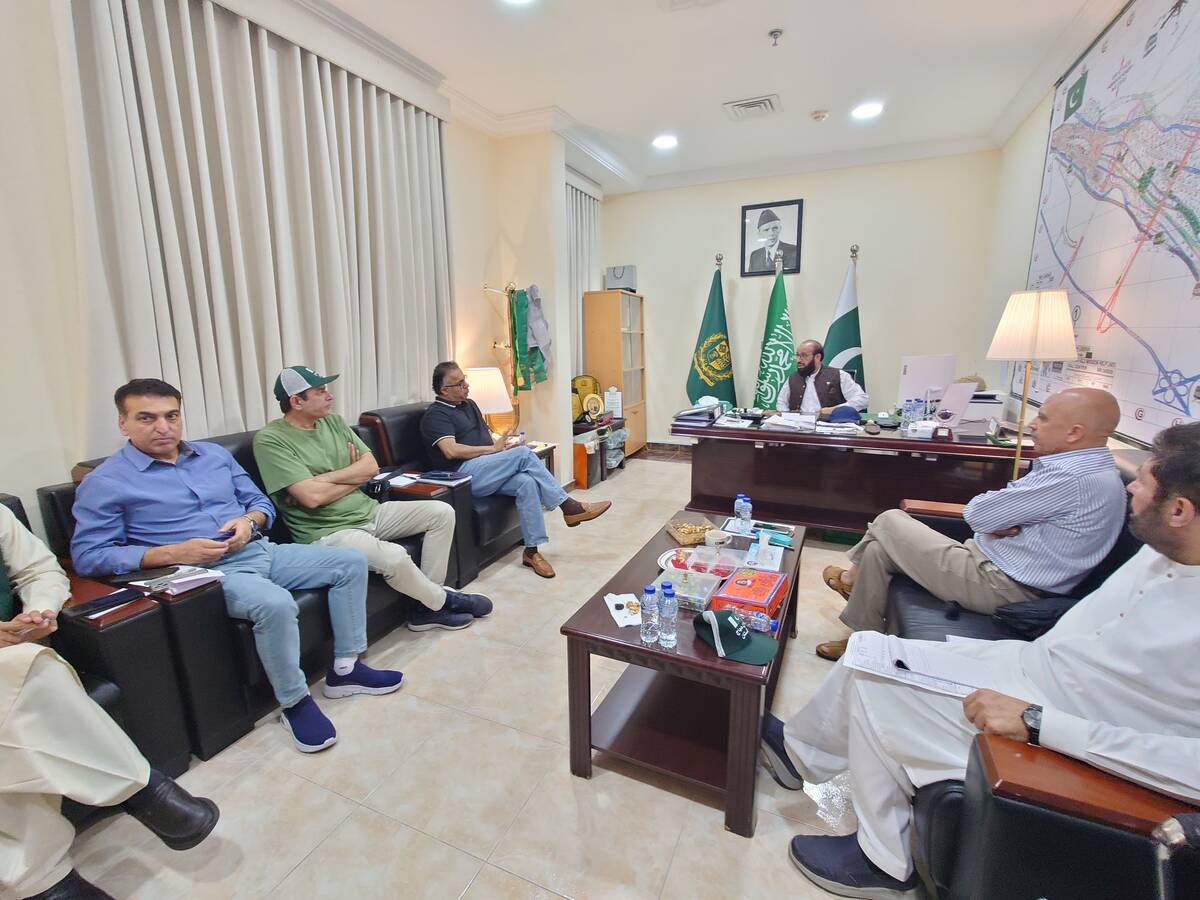LAHORE: A Pakistani YouTube star who was gifted a lion cub on his wedding day has avoided jail after promising a judge to upload animal rights videos for a year.
Rajab Butt has one of the largest online followings in the South Asian country and his week-long nuptials in late December were plastered over celebrity gossip websites.
When a sleepy lion cub, resembling young Simba from the 2019 “Lion King” film, was presented to him in a gold-chained cage in front of thousands of guests who partied late into the night in the eastern megacity of Lahore, pictures spread rapidly online.
Butt captioned a video of the event “it’s raining gifts,” racking up nearly 10 million views.
The morning after, police raided his house, confiscated the cub and kept the newly-wed in custody overnight.
“We found out about the lion cub through social media,” said Faisal Mushtaq, an inspector from the Punjab provincial wildlife department.
Police officers went to Butt’s house and found the lion cub roaming around the garage, he said.
“It was in a poor condition, as it was very cold,” said Mushtaq.

Pakistani zookeeper Mohammad Amir, holds a lion cub confiscated from YouTuber Rajab Butt, at a safari zoo in Lahore on January 28, 2025. (AFP)
Last week, Butt pleaded guilty to owning an undocumented wild animal but the judge waived a possible fine and prison sentence of up to two years for a more tailored punishment.
Every month for one year, he must post a five-minute video dedicated to animal rights, said the order by judge Hamid Ul Rahman Nasir.
The social media influencer agreed to the conditions, after admitting in a court statement that he “set a poor example” by accepting the gift and going on to “glorify it.”
Butt is one of the country’s highest-paid YouTube stars, according to the platform, and usually posts videos about his family’s daily life, from arguments to new car purchases.
Tanvir Janjua, a veteran wildlife official in Punjab, said the cub was likely bought for between 700,000 and 800,000 Pakistani rupees ($2,500-$2,900).
“It is so wrong, morally and legally, to take away such a small cub from its mother,” which was likely still feeding it, he told AFP.

Lion cubs rest beside their mother at a safari zoo in Lahore on January 28, 2025. (AFP)
NEW REGULATIONS
A week after the YouTuber was arrested, an adult lion escaped from his cage, running through the narrow streets of a Lahore neighborhood as residents clambered to their rooftops.
The full-grown adult male was eventually shot dead by a security guard, prompting heated outrage on social media about the dangers of keeping a big cat in a residential area.
Big cats are imported and bred across Pakistan, seen as symbols of wealth and power to the elite that own them.
Last year, Pakistan Muslim League-Nawaz, which rules the government, banned supporters from bringing lions — the symbol of the party — to political rallies.
However, stringent new regulations banning private ownership of big cats in residential areas are currently making their way through Punjab’s provincial government.
Breeders would have to buy a license and have at least 10 acres (four hectares) of land on a site approved by wildlife officials.
‘NEVER BE YOUR PET’
The gifted lion cub, which hasn’t been named, is now enjoying the winter sun in an open pen at Lahore’s sprawling Safari Zoo on the edge of the city, under the watchful eye of a handler.
Janjua, also the zoo’s deputy director, has conducted hundreds of raids against owners, breeders and poachers over the past 33 years to confiscate wild animals, including lions which often had their teeth and claws removed.
“Look at these YouTubers who use these animals to get clicks. What kind of a message are they spreading by being cruel to these animals?” he said, scornful of those who parade them in their cars and at political rallies.
“They can never be your pet. For two or three months it won’t say anything but after that, it will turn aggressive.”
As he nears retirement, Janjua says attitudes toward animals have worsened throughout his career. Laws, however, have improved, he says.
“Now wildlife officials have dedicated uniforms, weapons and we will get our own courts,” he told AFP.
“The courts that already exist are now strict about animal cruelty.”

















